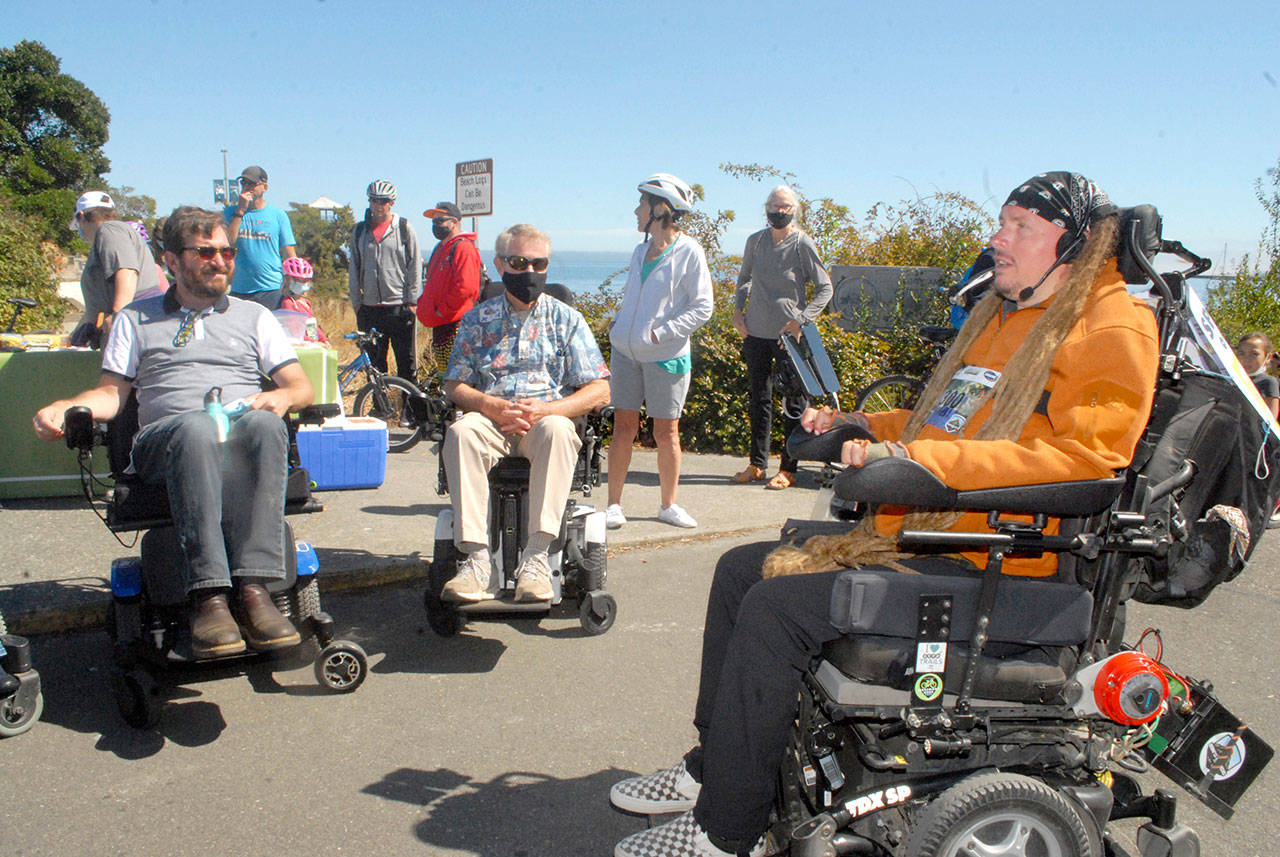It’s all about the great outdoors, regardless of ability.
The third-annual three-day, 74-mile Sea to Sound multi-modal traverse of portions of the Olympic Discovery Trail in Clallam County and the Larry Scott Trail in Jefferson County this past weekend drew nearly 100 participants.
Also known as Ian’s Ride, the event covered some of the most scenic portions of both counties.
Ian Mackay of Port Angeles, who has been paralyzed from the neck down since a bicycle accident in 2008, founded the event in an effort to raise awareness of disabilities while offering participants a chance to experience the North Olympic Peninsula in ways they may not have thought about.
“It’s designed for people of all abilities, but we really try to cater to the wheelchair crowd,” Mackay said on Saturday. “It’s so infrequent that you can find an event for people with disabilities.”
Sea to Sound was spread out into portions that were manageable for most people with shuttles available to take participants to waypoints along the route.
All three Clallam County commissioners — Bill Peach, Randy Johnson and Mark Ozias — and Jefferson County Commissioner Greg Brotherton took to motorized wheelchairs to ride segments of the journey. Participants set out on Friday from the Camp Creek Trailhead west of Lake Crescent and followed the newly refurbished Spruce Railroad Trail in Olympic National Park.
“This is the first year we could include the spruce RR section on our route,” Mackay said. “It added about 4 or 5 miles, but it is stunning.
“You cannot help but feel elated when you’re out there. You’re just boosted.”
Saturday’s trek followed the Olympic Discovery Trail and the Waterfront Trail from the Elwha River bridge to Carrie Blake Park in Sequim. Dozens of people joined the procession at Port Angeles City Pier.
Sunday began at the Jamestown S’Klallam Tribal Headquarters in Blyn and followed the ODT and back roads to the south end of Discovery Bay. From there, participants were shuttled to the southern terminus of the Larry Scott Trail, skipping the shoulder of state Highway 20 — the current temporary route for the trail — for safety reasons.
The journey continued on the Larry Scott to its conclusion in Port Townsend.
Aid stations were placed at strategic points each day to assist with medical, technical and hunger needs.
Mackay said the ride was designed with an emphasis on inclusion, taking into account individual needs and requirements.
For those unable to make the journey in person, a virtual option was made available for internet users to experience the ride at their own pace.
Mackay said the logistics of arranging shuttles and setting up daily aid stations was daunting, but providing an outdoor adventure was worth the effort.
“It’s a labor of love out here, and we’re happy to do it,” he said. “You can’t help but feel rejuvenated when you’re out there.“



